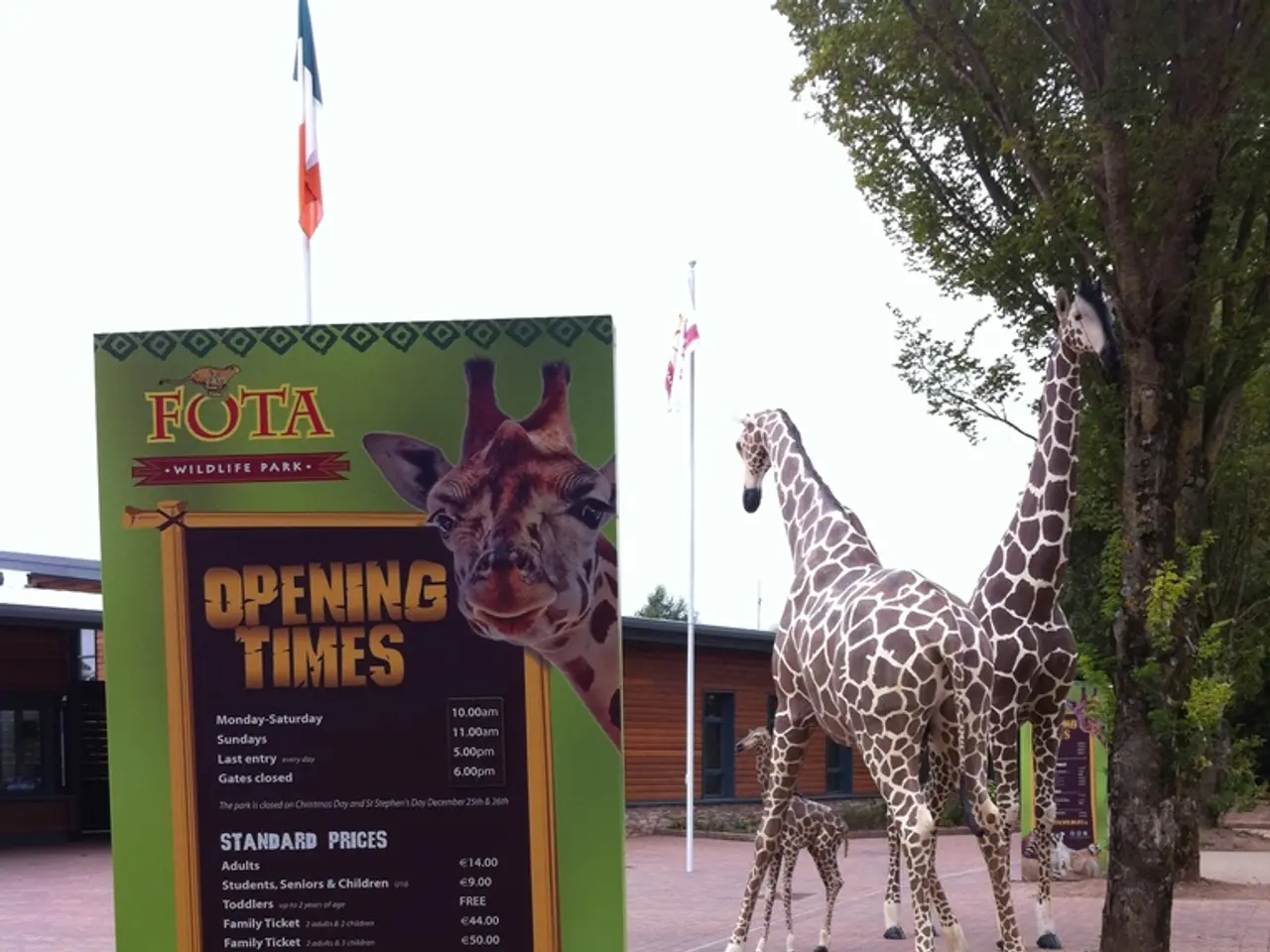Wild pygmy hippo conservation potentially benefited from the Moo Deng phenomenon.
In the tumultuous year of 2024, a beacon of hope emerged in the form of a playful pygmy hippo named Moo Deng. Born on the 10th of July at the Khao Kheow Open Zoo in Bang Phra, Thailand, Moo Deng quickly captured hearts around the globe with her exuberant antics.
Moo Deng's fame extended far beyond the boundaries of Thailand, with appearances in a Saturday Night Live skit in the US and a theme song in Thai. This international recognition not only brought joy to many but also seemed to raise some awareness about the existence of pygmy hippos, an endangered species.
The sudden popularity of Moo Deng has resulted in a significant increase in funding and attention for wild pygmy hippos. Through viral media and conservation campaigns led by local communities and environmental organizations, Moo Deng's story has drawn public attention to the plight of these endangered creatures.
However, it's important to note that this increased funding has yet to directly benefit wild pygmy hippos, according to conservation groups. Burgeoning local human populations remain another threat, leading to habitat loss.
The Khao Kheow Open Zoo, a member of WAZA (World Association of Zoos and Aquariums), is part of a global community striving to set standards for animal welfare and conservation. WAZA members, including the Khao Kheow Open Zoo, have recently agreed on a new resolution aimed at halting extinctions, reversing declines, restoring populations, and securing a future for threatened species.
WAZA CEO Zordan emphasizes that zoos are expected to make meaningful contributions to the conservation of wild species and wild places. The IUCN SSC Hippo Specialist Group veterinarian Gabriella Flacke agrees, stating that the lack of financial and logistical resources is a 'major threat' to the pygmy hippo species.
As we look to the future, the question remains whether Moo Deng's global and stunning popularity can aid her brethren in the wild. The increased awareness and funding, while not yet directly benefiting wild pygmy hippos, could potentially pave the way for a brighter future for this endangered species.
Meanwhile, the year 2024 also witnessed 12 months of bombing in Gaza by Israel and displaced 10 million people in Sudan due to war. Hugely important elections were held in various nations including Indonesia, France, India, the UK, and the US. Despite these global challenges, the story of Moo Deng serves as a reminder of the power of public interest in driving positive change.
The FFI (Fauna & Flora International) has also seen an uptick in the number of visitors at its pygmy hippo page due to Moo Deng's popularity. As we continue to follow Moo Deng's journey, let's hope that her fame can indeed make a difference for her endangered brethren in the wild.
Mongabay.com published this story with permission.
Read also:
- Russia, according to Zelensky, lacks the prowess for launching another significant offensive.
- Russia's Latest Peace Proposals for Donbas: New Diplomatic Landscape Emerges amid Alaska Summit, Potentially Opening Ceasefire Opportunities
- Amidst India's escalating climate crisis, transgender individuals continue to persevere
- Contentious Discussion Surrounding the Movie Release of "Planet of the Humans"








